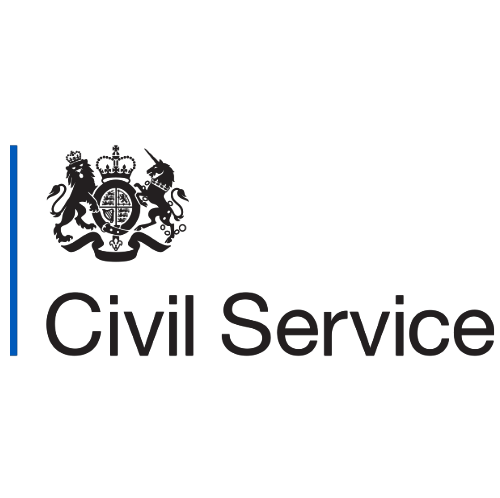Civil Service psychometric tests
Learn more about Civil Service psychometric tests
Prepare for your Civil Service numerical reasoning tests. Give yourself the best chance of passing your Civil Service numerical reasoning tests.
Prepare for your Civil Service numerical reasoning tests. Give yourself the best chance of passing your Civil Service numerical reasoning tests.

Learn more about Civil Service psychometric tests
Prepare for your numerical reasoning test
Practice with free numerical reasoning tests

Civil Service numerical reasoning tests are online tests, provided by Cubiks/Talogy, which are not usually timed. They are designed to assess a candidate’s ability to interpret and analyse numerical data, solve problems, and make informed decisions. These tests are typically required for roles where numerical proficiency is important and are used as a standardised, objective measure of the relevant skills. The 15-20 questions focus on practical workplace tasks, such as interpreting charts, calculating percentages, and understanding ratios, ensuring candidates can handle the numerical demands of the role.
To excel in numerical reasoning tests, start by familiarising yourself with the test format and practising similar questions to build confidence and improve speed. Focus on core mathematical concepts such as percentages, ratios, averages, and interpreting data from charts and graphs. Time management is crucial, so prioritise easier questions and avoid spending too long on any single task. Use a calculator effectively, where permitted, to save time and ensure accuracy. Stay calm and focused during the test, carefully reading instructions and double-checking answers if time allows. Consistent practice and a strategic approach are key to achieving a strong performance.
Register now for free numerical reasoning tests to give yourself the best preparation for your Civil Service numerical reasoning tests.

Candidates must apply online on the Civil Service website. As part of the application process, all applicants must submit a CV. The CV should be well-structured, professional, and emphasise skills and experience aligned with the role.
Applicants advancing to Stage 2 must complete Civil Service psychometric tests in order to demonstrate proficiency in skills relevant to the role. These Civil Service aptitude tests are provided by Cubiks/Talogy. Numerical reasoning tests assess the ability to apply and understand mathematical concepts in a workplace setting, while verbal reasoning tests evaluate strong language comprehension. Situational judgement tests measure a candidate’s decision-making abilities in simulated scenarios. The Civil Service may require one or more of the following to be completed (the job advert will specify which):
The Civil Service video interviews consist of 9 pre-recorded questions that candidates must answer in their own recorded video clips. To excel in these 25-minute interviews, candidates should thoroughly review their CV, understand how their experiences align with the role, and prepare examples that demonstrate their alignment with the Civil Service’s values. Confidence, professionalism, and thoughtful responses are key to making a strong impression.
Applicants to the Civil Service Fast Stream may be required to attend the FSAC. This virtual assessment centre includes different tasks such as the Written Advice Exercise and the role-play scenario as part of the Stakeholder Communication Exercise. There is also a 30 minute interview with an assessor which is the final exercise of the FSAC.
The Civil Service panel interview is conducted by managers and officials who ask applicants questions about strengths, knowledge, and relevant past experience. To excel in a panel interview, preparation is key. Research the company, its values, and the role in detail, ensuring you can confidently discuss how your skills align. Practise answering common interview questions using the STAR method (Situation, Task, Action, Result) to structure responses effectively. Maintain good eye contact with all panel members, not just the person who asked the question, and engage with each interviewer by addressing their specific concerns. Stay composed, speak clearly, and be ready to provide concrete examples of your experience. Finally, prepare thoughtful questions to ask the panel, demonstrating your enthusiasm and understanding of the role.
Civil Service use psychometric tests as part of its recruitment process to identify candidates who align with its company values like responsibility and boldness. As well as numerical reasoning, Civil Service aptitude tests that form part of Civil Service’s application process include verbal reasoning, and situational judgement. Verbal reasoning tests assess proficiency in verbal comprehension and logical reasoning. To succeed, candidates must demonstrate a strong understanding in each test, as well as accuracy and speed. Familiarity with these tests and thorough practice are crucial for performing well and enhancing the chances of success in Civil Service’s application process.
Register now for free psychometric tests to give yourself the best preparation for your Civil Service psychometric tests.

The Civil Service Verbal Test is a verbal reasoning assessment provided by Cubiks/Talogy. Civil Service psychometric tests such as these require candidates to read passages and answer multiple-choice questions based solely on the information in the provided texts, evaluating skills such as logical reasoning and attention to detail. Civil Service uses these aptitude tests to assess a candidate’s ability to process language effectively in a professional context, ensuring a standardised and efficient evaluation process. To perform well, candidates should practise and become familiar with the test format, as success depends on accurately analysing the information without relying on prior knowledge or assumptions.

The Civil Service Judgement Test, also known as the Civil Service situational judgement test, is provided by Cubiks/Talogy. These aptitude tests are widely used in recruitment to evaluate a candidate’s decision-making, interpersonal skills, and alignment with organisational values by presenting hypothetical, job-related scenarios. Candidates are required to choose the most appropriate responses to various situations, reflecting their judgement and approach to workplace challenges. To excel in this assessment, candidates should ensure their answers align with the Civil Service’s (detailed in the Civil Service Code) such as integrity and objectivity, and practice similar test formats beforehand. Demonstrating professionalism, sound judgement, and suitability for the role is essential. Civil Service situational judgement tests also provide insight into a candidate’s problem-solving abilities and behavioural tendencies, offering a standardised way to assess how well they may perform in real-world job scenarios.

Civil Service numerical reasoning tests, typically provided by Cubiks/Talogy, assess a candidate’s ability to interpret and analyse numerical data. They include tasks such as calculating percentages, understanding ratios, and interpreting charts or graphs. These tests are commonly used for roles requiring numerical proficiency and are usually untimed.
The difficulty level varies depending on the role. While the questions are based on basic mathematical principles, the challenge comes from the need to analyse and apply numerical data accurately in workplace scenarios. Strong problem-solving and time-management skills can help candidates perform well.
Yes, candidates are generally allowed to use a calculator, but it’s important to check the specific test instructions before beginning. If permitted, using a calculator effectively can help save time and improve accuracy.
Preparation is key. Candidates should:
No, the tests are typically untimed, allowing candidates to focus on accuracy rather than speed. However, it’s still important to work efficiently to ensure all questions are answered.
Candidates who do not pass may not progress to the next stage of the recruitment process. However, some roles allow retakes after a waiting period. It is always best to review feedback (if provided), improve key skills, and practise before attempting the test again.